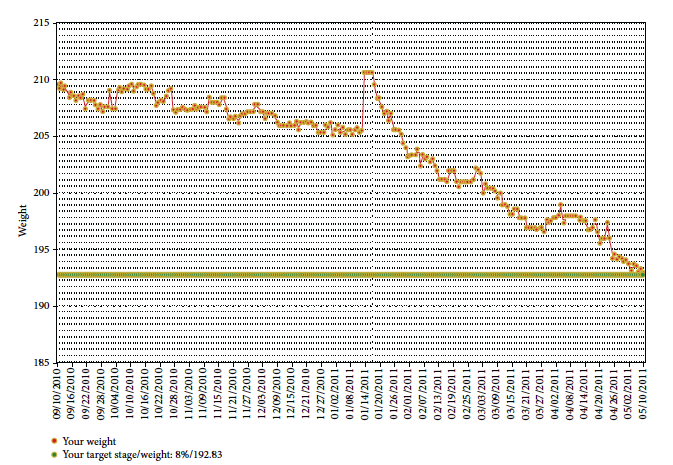For those working to lose weight, hopping on that bathroom scale daily, having goals and charting your progress may be simple but effective ways to bump up weight loss, suggests a new study published today.
The study, published in the Journal of Obesity, adds to a body of research finding that dieters who track their weight have better success at both weight loss and maintenance. And for lower cancer risk, weight is important. Being overweight and obese is a cause of ten cancers, including postmenopausal breast, colorectal and liver. AICR’s top Recommendation for Cancer Prevention is for people to stay a healthy weight.
This study was held over two years and it started with approximately 150 participants all learning the same evidence-based strategies for weight loss. Everyone was encouraged to make small healthy changes but they weren’t given a specific diet or exercise plan.
The men and women were then divided into two groups. One group was given a scale and asked to weigh themselves daily, preferably in the morning, and then enter their weight on a (password-protected) website. They were directed to aim for 10% weight loss that first year then maintain it the second year. The website gave each person a chart that tracked their progress along with visualization of goal weights. The chart showed trends, having a line appear 1% below the person’s current weight for a new target weight. (After maintaining that target weight for 8 days, the green line lowered another 1% on the chart.)

example of weight-loss visual, with goals and trends
The second group was told they would receive the weight-loss intervention after a year.
In the first year, the weighers entered their weight online an average of four times a week. By the end of the year, the group that weighed themselves lost an average of almost 6 pounds while the comparison group lost 1 pound on average.
Almost triple the number of people in the weighing group lost 5 percent of more of their body weight (20 people compared to 7). And 6 people in the weighing group lost 10 percent of their body weight compared to 3 in the comparison group.
For people who are overweight, a 5 to 10 percent weight loss links with improvements in many signs of health, such as lower blood pressure, along with markers that relate to cancer risk.
The second year, when the waiting group was given the bathroom scale and could see their progress online, their weight loss bumped up to four pounds. The first group, who was still weighing themselves, maintained their weight loss.
It’s possible that the difference in weight loss seen was partly due to participants knowing they were being watched and studied, the authors note. Yet they tried to keep investigator involvement at a minimum, not giving any congratulations or remarks when people met their goals.
Tracking your weight is one of the strategies incorporated in our New American Plate Challenge, a free online program of for healthy eating and living — all to lower cancer risk. That’s starting in September by the way, and you can sign up now online.
Study authors were supported by NIH/NIDDK and a Kirschstein National Research Service Award, Institutional Research Training Grant.






I liked when you said that losing weight helps you with blood pressure. I can definitely understand how making sure you have a weigh scale can help you monitor how much weight you need to loose in order to have an optimal body. It is important to remember that buying the right balance can help you keep track of how much weight you loose as well as helping you stay on track to achieve your goals.